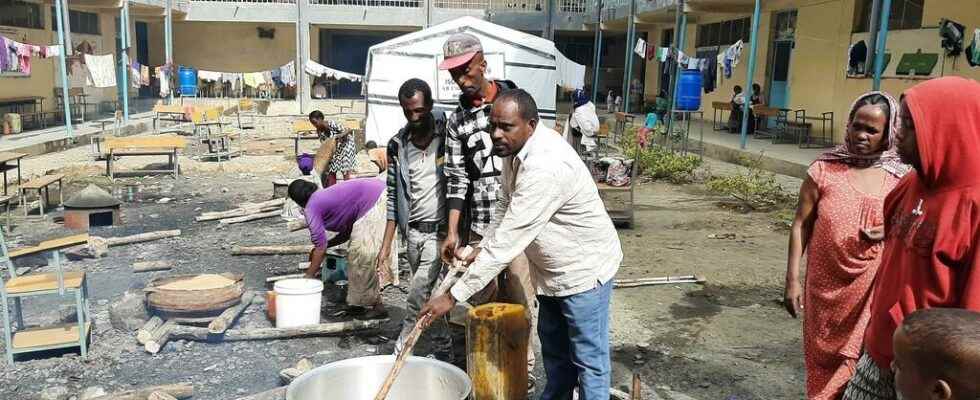A “campaign of ethnic cleansing” in western Tigray in Ethiopia, this is what Amnesty International and Human Rights Watch denounce in a joint report made public on Wednesday. A disputed administrative area, under Tigray rule since the 1990s, Western Tigray came under the control of the Ethiopian National Defense Forces (ENDF) and allied forces and militias from the Amhara region within two weeks of the outbreak. of the conflict in Tigray in November 2020.
With our correspondent in the region, Florence Morice
” They kept saying, “We’re going to kill you. Get out of the area” “says a Tigrean. This testimony is one of hundreds collected by investigators from Amnesty International and Human Rights Watch. A total of 400 stories were collected by the NGOs. Including that of a 70-year-old Tigrayan, arrested in Humera last year, says Laetitia Bader, director for the Horn of Africa at Human Rights Watch.
He was held for 2 weeks at Bet Hintset, one of the informal detention centers where we have documented the worst abuses in Humera, along with what he believes to be thousands of other prisoners. He was beaten – a 70-year-old man – several times. While in detention, two older men he knew were beaten to death. After two weeks, and when he was already in a terrible state, he was loaded into a truck and transported to the Tekeze river. Later, in another part of Tigray, this man will survive a drone attack. These incredibly serious crimes should elicit global outcry and response. But this campaign against Tigrayans has been hidden from the world not only because of the willingness of federal and regional authorities to block access to human rights defenders and independent media, but also because of the restrictions imposed on communities that prevent them from fleeing.
Laetitia Bader, Horn of Africa director at Human Rights Watch
After fifteen months of teamwork, in their report compiling nearly 250 pages of testimonies of rare violence, Amnesty and HRW detail what they describe as a campaign ” coordinated ethnically targeted persecution against Tigrayans in Western Tigray. ” Plans to empty the region of its Tigrayans have been discussed and spoken about in public whether in meetings, through pamphlets or ultimatums. The authorities have also deprived Tigrayan communities of resources essential to their survival by denying them access to their lands. They also encouraged looting, issuing permits for the transport of looted goods “, according to Fisseha Tekle, researcher for Amnesty International.
charges of “ war crimes ” and of ” crimes against humanity »
The report by the two NGOs documents a long list of abuses: extrajudicial executions, sexual violence, mass arrests, as well as several waves of forced displacement, including one again last November.
The investigators document in particular the massacre of about sixty men on the Tekeze river, mass expulsions supervised by the newly appointed civil authorities or even secret detention centers where Tigrayans are tortured and killed.
They also evoke the rapes for ” purify the blood of the victims, the daily threats to incite them to leave, the racist insults. And they name at least three officials, who they say should be tried for overseeing these crimes, including Colonel Demeke Zewdu, a former peacekeeper who became a nationalist activist, then a political prisoner, and now an administrator in the region.
These abuses constitute, according to the two NGOs, “ war crimes » and « crimes against humanity “. ” Trucks transporting Tigrayans were often escorted by special forces or Amhara militias, sometimes by federal government forces. Coordination in bus schedules and movements, as well as similarities in testimonies indicate that these are centrally planned operations “says Laëtitia Bader.
The NGO is particularly concerned today for the Tigrayans still detained in western Tigray, subjected, according to the NGO, to food deprivation and torture.
